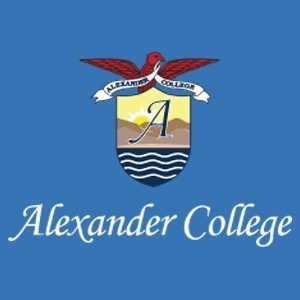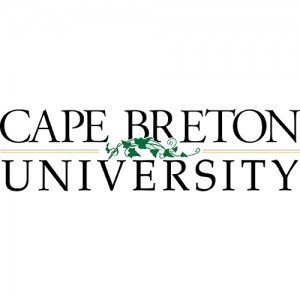Photos of university / #uwinnipeg
Capacity to develop a comprehensive understanding of Applied Chemistry through rigorous coursework and practical laboratory experience. The Applied Chemistry program at The University of Winnipeg is designed to prepare students for diverse careers in chemical industries, research, and academia by providing a solid foundation in chemical principles, analysis techniques, and experimental methods. Students will explore various branches of chemistry, including organic, inorganic, analytical, and physical chemistry, with an emphasis on applying theoretical knowledge to real-world problems. The program emphasizes the development of practical skills such as laboratory experimentation, data analysis, and problem-solving, equipping graduates to meet industry standards and contribute effectively to chemical research and development. As part of their education, students will engage in internships and cooperative education opportunities, gaining valuable work experience and networking contacts in the chemical sector. The curriculum also incorporates modern technology and instrumentation, including chromatography, spectroscopy, and other analytical tools essential for laboratory analysis and quality control. Graduates of the Applied Chemistry program will be prepared for careers in pharmaceuticals, environmental monitoring, materials science, food chemistry, and manufacturing industries. Additionally, the program provides a pathway for students interested in pursuing graduate studies or professional certification in chemistry. The university's faculty members are active researchers and experienced educators dedicated to supporting student success through personalized mentorship and collaborative projects. State-of-the-art facilities and innovative teaching approaches ensure a vibrant learning environment that fosters curiosity, critical thinking, and technical competence. With a focus on applied skills and industry-relevant knowledge, the Applied Chemistry program aims to produce versatile graduates capable of addressing contemporary chemical challenges and contributing to advancements in science and technology. Whether students aspire to work in industrial laboratories, research institutions, or pursue further education, this program offers a comprehensive foundation to achieve their professional goals and make meaningful contributions to society.
The Bachelor of Science in Applied Chemistry at the University of Winnipeg offers a comprehensive and rigorous curriculum designed to prepare students for careers in the chemical sciences, research, and related industries. The program combines foundational principles of chemistry with practical laboratory experience and exposure to advanced topics, ensuring graduates are well-equipped with both theoretical knowledge and hands-on skills. Throughout the program, students engage with core areas such as organic, inorganic, physical, and analytical chemistry, gaining a strong understanding of chemical interactions and processes essential for various scientific applications.
The curriculum emphasizes experiential learning, with numerous laboratory courses that develop proficiency in modern analytical techniques, instrumentation, and data analysis. Students also have opportunities to participate in research projects, internships, and cooperative education placements, fostering real-world experience and professional development. The program’s design encourages critical thinking, problem-solving, and effective communication necessary for success in research environments, industrial settings, or postgraduate studies.
In addition to chemistry-specific coursework, students can explore related disciplines such as environmental science, materials science, and biochemistry, broadening their knowledge base and enhancing their versatility as scientists. The program also provides preparation for graduate studies, certifications, or employment in sectors such as pharmaceuticals, petroleum, manufacturing, environmental consulting, and government agencies. Faculty members are dedicated to providing mentorship and supporting student research initiatives, ensuring a rich academic experience. With a combination of theoretical instruction, practical training, and professional development opportunities, the Applied Chemistry program at the University of Winnipeg aims to cultivate skilled, innovative, and responsible scientists who can contribute meaningfully to society and the scientific community.
Program Requirements for Bachelor of Science in Applied Chemistry at The University of Winnipeg
Admission Requirements: Prospective students must have completed a Manitoba high school diploma or equivalent with a strong background in science and mathematics. Specifically, applicants should have completed courses in chemistry, physics, and mathematics with competitive grades. International students are required to submit proof of English language proficiency, such as TOEFL or IELTS scores, meeting the university’s minimum standards. Prior post-secondary coursework relevant to chemistry can be considered for transfer credits. All applications must include official academic transcripts, a personal statement, and letters of recommendation. The university evaluates applicants on academic performance, potential for success in the program, and extracurricular involvement related to science.
Degree Program Requirements: The Bachelor of Science in Applied Chemistry program typically requires the completion of a minimum of 120 credit hours over a four-year period. The curriculum combines foundational courses, advanced elective courses, laboratory work, and a culminating research project or internship. Students are required to complete core courses such as General Chemistry, Organic Chemistry, Physical Chemistry, Analytical Chemistry, Inorganic Chemistry, and Laboratory Techniques. To develop proficiency, students must also undertake courses in mathematics, including calculus and statistics, as well as physics.
Elective courses give students the flexibility to explore interdisciplinary areas such as biochemistry, environmental chemistry, materials science, and chemical engineering. Laboratory courses are integral to the program, emphasizing practical skills, safety procedures, and experimental techniques essential to applied chemistry professions.
Graduation requirements include maintaining a minimum cumulative GPA, typically around 2.0 or higher, and successfully passing all required courses. Moreover, students are encouraged to participate in undergraduate research projects, internships, or cooperative education to enhance practical experience and employability.
Additional Program Components: Students must complete a capstone project involving research or application of chemical principles, demonstrating independent problem-solving skills. They are also expected to engage in seminars, workshops, and industry visits organized by the department to deepen their understanding of current trends and career opportunities in applied chemistry.
Throughout the degree, students are advised to consult with academic advisors regularly to ensure they meet all program-specific requirements and to tailor their education pathway according to their career goals.
Overall, the program aims to produce graduates equipped with comprehensive chemical knowledge, laboratory competence, analytical abilities, and professional skills suitable for careers in industry, research, or further academic study.
The University of Winnipeg offers a comprehensive range of financial aid options and funding opportunities for students enrolled in the Applied Chemistry undergraduate program. Prospective and current students can access various scholarships, bursaries, and financial assistance programs designed to support their academic journey. Entrance scholarships are available based on academic achievement, which can significantly offset tuition costs for high-performing students. Additionally, the university provides merit-based awards specifically targeted towards students entering the sciences, including chemistry. For students demonstrating financial need, there are bursaries and need-based awards that help ease the financial burden of higher education.
Students are encouraged to apply for provincial and federal government financial aid programs such as the Manitoba Student Assistance Program (MSAP), which offers student loans and grants. These programs are designed to supplement personal resources and family contributions, enabling students to manage their educational expenses more effectively. Work-study opportunities are also available on campus, allowing students to earn income while gaining valuable work experience related to their field of study. The university’s cooperative education (co-op) programs provide paid internships that combine academic coursework with practical work placements, helping students fund their studies while gaining industry experience.
International students enrolled in the Applied Chemistry program can explore additional funding sources, including international scholarships and sponsorships, some of which are offered directly through The University of Winnipeg or through external organizations. Moreover, students are advised to seek external funding sources such as private scholarships and industry-sponsored awards, which are often available to students pursuing degrees in the sciences. The university’s financial services department provides detailed guidance and counseling to help students identify appropriate funding options, complete application processes, and meet scholarship deadlines. Overall, The University of Winnipeg strives to provide a variety of financial support mechanisms to ensure that students enrolled in the Applied Chemistry program have access to affordable education and can focus on their academic and professional development without undue financial stress.
The Bachelor of Science in Applied Chemistry at The University of Winnipeg provides students with a comprehensive education in the principles and applications of chemistry. The program is designed to prepare graduates for careers in industries such as pharmaceuticals, environmental science, materials development, and chemicals manufacturing, as well as for further studies in graduate or professional schools. The curriculum combines theoretical coursework with practical laboratory experience, ensuring that students develop both conceptual understanding and hands-on skills necessary to succeed in various chemistry-related fields.
Students in the Applied Chemistry program gain a solid foundation in core areas such as organic, inorganic, physical, and analytical chemistry. In addition, the program offers specialized courses in applied and industrial chemistry topics, including chemical analysis techniques, laboratory management, and safety procedures. Emphasis is placed on developing problem-solving skills, critical thinking, and the ability to analyze complex chemical data. Through coursework and laboratory projects, students learn to operate modern analytical instruments and techniques, which are crucial for quality control, research, and development roles in industry.
The program also includes opportunities for cooperative education, internships, or research projects, allowing students to gain real-world experience and industry connections. This aspect of the program enhances employability and prepares graduates to meet the demands of a competitive job market. The faculty members involved in the Applied Chemistry program are experts in their fields, often conducting innovative research that contributes to advancements in chemistry and related disciplines.
Graduates of the program are equipped to pursue careers in sectors such as healthcare, environmental management, manufacturing, and government agencies. They also have the option to continue their education through graduate studies in chemistry or related fields. The University of Winnipeg's strong community engagement and partnerships with local industries provide students with additional networking opportunities and practical exposure to current industry practices. Overall, the Applied Chemistry program at The University of Winnipeg offers a rigorous and versatile education that prepares students for success in science and industry, supported by modern facilities, dedicated faculty, and a vibrant academic community.





